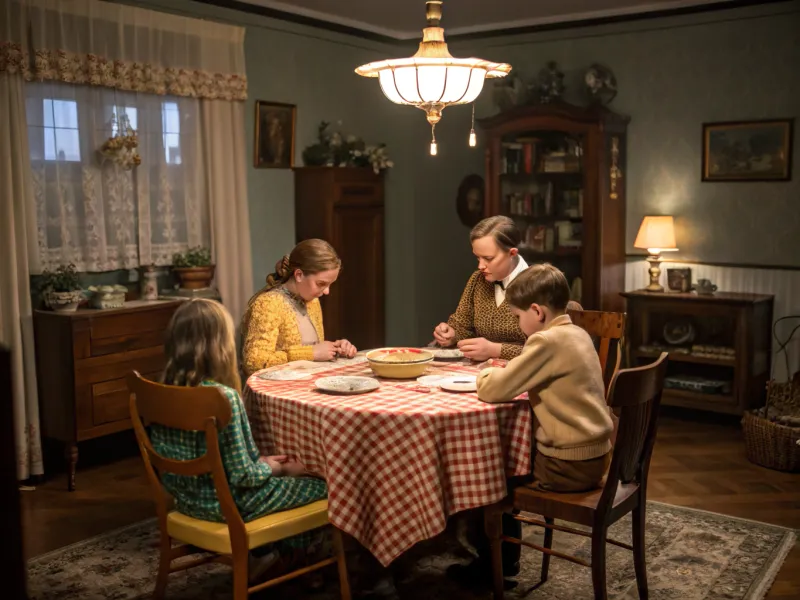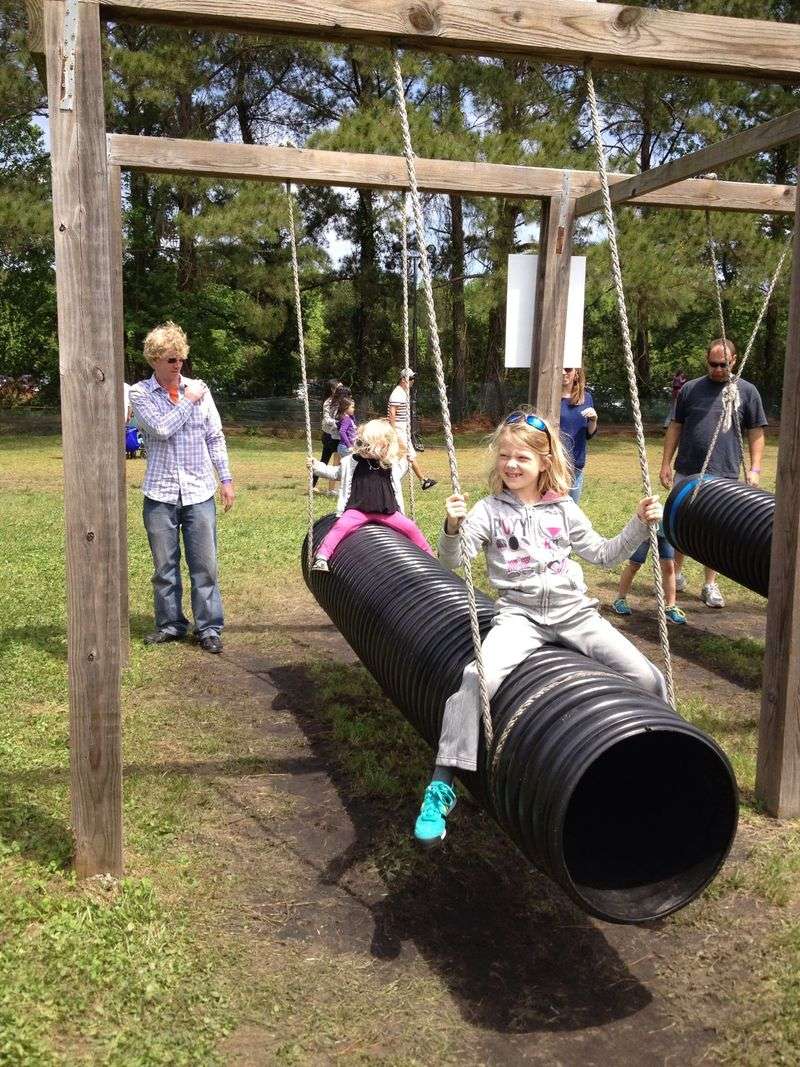In the past, children grew up in a world governed by a set of rules that now seem outdated. These home rules, passed down through generations, shaped daily life and childhood experiences.
While some may bring back fond memories, others highlight the societal norms of bygone eras. Let’s explore these once-common rules and how they influenced the upbringing of many.
Strict Bedtimes

Early to bed was a common mantra. Strict bedtimes ensured children were tucked in often before sunset.
The belief was that early sleep led to better health and discipline. Most households adhered to this rule, creating a routine that was hard to break.
Parents valued predictability, ensuring that lights were out, and stories were read. Childhood evenings were cut short, leaving little room for late-night adventures.
Today, flexibility often replaces rigidity, recognizing diverse sleep needs. Yet, those early bedtimes still echo in the memories of many adults, recalling a structured, yet secure time.
No Talking at Dinner

The dinner table was a place of quiet reflection. Silence during meals was expected, fostering an environment of respect.
Conversation was often reserved for adults, while children listened in silence. It was believed that mealtime was sacred and should focus on eating.
Today, family meals are lively, filled with chatter and shared stories. This shift allows for bonding and communication, contrasting starkly with the past’s formality.
The silent dinner rule is now a relic, with families embracing conversation as a way to connect and share daily experiences.
Homework Before Play

In the past, education took precedence over leisure. Homework had to be completed before any playing commenced.
Parents enforced this rule to instill discipline and prioritize academics. This practice often led to rushed evenings, with children finishing assignments under watchful eyes.
The reward of playtime was contingent on academic diligence. Nowadays, the balance between play and work is more nuanced, recognizing the importance of relaxation.
Despite this, the echoes of strict homework routines persist, reminding us of a time when academics were the ultimate priority.
Limited Screen Time

Television was a treasured privilege, rationed carefully. Screen time was limited, often to an hour a day, to ensure children spent time creatively elsewhere.
Parents believed too much TV was harmful, prompting them to regulate viewing strictly. This limitation often led to creativity, with children turning to books and outdoor games.
Over time, the concept of screen time has evolved, with modern technology offering endless entertainment. Yet, the notion of balanced media consumption remains relevant, echoing past concerns about screen time’s impact on young minds.
Chores Before Fun

Chores were non-negotiable parts of daily life. Before any fun could begin, household tasks needed completion.
This rule taught responsibility and contributed to family upkeep. Parents insisted on chores as character-building exercises.
Today, the approach to chores is more flexible, often integrated with rewards. However, the principle remains: responsibilities first, then leisure.
This rule instilled a sense of duty, reminding many of their first lessons in work ethic. It continues to resonate, even as modern families adapt it to suit current lifestyles.
Politeness to Elders

Respecting elders was paramount. Children were expected to show politeness, addressing adults with formal titles.
This practice reinforced social hierarchies and instilled manners. Politeness extended beyond the home, shaping interactions in schools and communities.
Today, while respect remains vital, the expression of it has evolved to be more egalitarian. The rule’s essence lives on, albeit with less formality.
It highlighted the importance of recognizing and appreciating wisdom from older generations, a practice that continues to hold value.
Sunday Best Clothing

Dressing in ‘Sunday best’ was a weekly ritual. Formal clothing was reserved for Sundays and special occasions, emphasizing respect and propriety.
Children were dressed meticulously, reflecting family pride. It was a time for families to present their best selves.
Today, casual wear often replaces formal attire, with comfort taking precedence. Yet, the ritual of dressing up occasionally persists, echoing a legacy of tradition and formality.
Memories of stiff collars and polished shoes linger, reminding us of a time when appearance was closely tied to respectability.
No Dessert Without Veggies

Dessert came with conditions. Eating vegetables was a prerequisite for sweet treats.
This rule aimed to ensure nutritional balance. Parents believed in rewarding healthy eating habits with sweets.
The practice often led to creative ways of avoiding greens, yet it instilled a lasting appreciation for balanced diets. Today, while dessert rules are less rigid, the principle of healthy eating remains.
The negotiations over finishing veggies for dessert still resonate, showcasing a timeless aspect of family dining dynamics.
Respectful Language Only

Swearing was strictly forbidden. Children were expected to use respectful language at all times.
Politeness was non-negotiable, with parents correcting any slip-ups rigorously. This rule was about maintaining decorum and fostering an environment of respect.
Over time, the rigidity has softened, but the importance of polite language persists. Families still value kindness and respect in communication, reflecting a timeless quality ingrained in many.
The echoes of this rule remind us of a childhood where words were chosen carefully, shaping respectful adults.
Outdoor Playtime

Children were encouraged to play outdoors, embracing nature and physical activity. This rule fostered creativity, with kids inventing games and exploring.
Parents believed outdoor play was essential for growth and health. Today, while technology has impacted play habits, the value of outdoor activity is still recognized.
Many families encourage balanced playtime, integrating nature with modern entertainment. The joys of outdoor play remain, reminding us of open fields and endless skies, a testament to the enduring appeal of nature in childhood.
